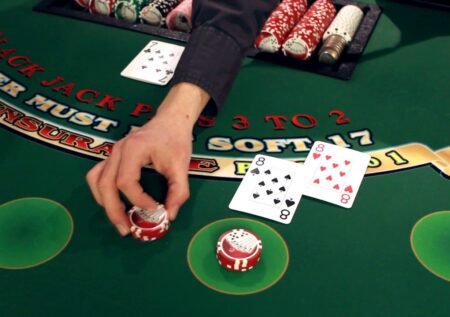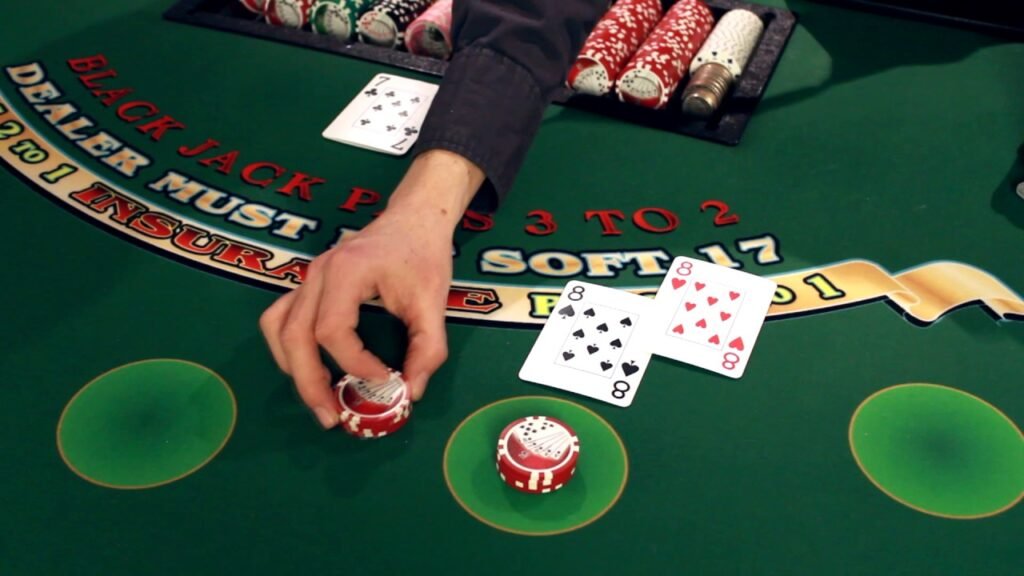


Blackjack offers a good advantage for the player in the basic strategy if he knows how to stand up and leave the table in a plus position. The most important thing is timing.
Blackjack is a simple yet exciting card game that offers players the chance to beat the dealer through a mix of strategy and luck. The objective is clear: get as close to 21 as possible without busting.
Black Jack is one of the most popular and widely played card games in casinos around the world. Known for its simple rules and mix of skill and luck, it attracts both beginners and seasoned players alike. The objective of the game is to beat the dealer by having a hand that is as close to 21 as possible without exceeding it. In this guide, we will explain the basic rules of Blackjack, from how the cards are valued to the different actions you can take during the game.
The goal in Blackjack is straightforward: get a hand with a total value as close to 21 as possible without going over. You are playing against the dealer, and to win, you need to either have a hand that is higher than the dealer’s hand or have the dealer go over 21, also known as “busting.”

The values of the cards in Blackjack are easy to understand:
For example, if you have a King and an Ace, your total hand value would be 21 (10 for the King and 11 for the Ace). This hand is called a Blackjack and is the best possible starting hand in the game.
Blackjack is typically played with one or more standard decks of 52 cards. The game starts with each player receiving two cards, both face-up, while the dealer receives one card face-up and one card face-down (the face-down card is called the hole card).
Once the cards are dealt, players have a few options to choose from, depending on the value of their hand. Here’s a breakdown of the basic actions you can take during a round of Blackjack:
After all players have completed their actions, it’s the dealer’s turn to play. The dealer reveals the hole card and must follow a set of predefined rules:
If the dealer’s hand exceeds 21, they bust, and all remaining players win. If the dealer stands with a hand between 17 and 21, players with a higher hand total win, while players with a lower total lose.
There are a few special rules and variations in Blackjack that can affect how the game is played:
Blackjack is a simple yet exciting card game that offers players the chance to beat the dealer through a mix of strategy and luck. The objective is clear: get as close to 21 as possible without busting. With its straightforward rules and the potential for strategic play, Blackjack remains one of the most popular games in both land-based and online casinos.
Whether you’re a beginner or an experienced player, understanding the basic rules and options available during gameplay will enhance your experience and help improve your chances of winning.
You can find some tips on how to win here:
Russian poker offers with the optimal strategy a RTP of up to 99.54%. But be sure to come with a certain amount of chips on the table. Because everything has in this game his price.
Roulette is a timeless casino game that offers both excitement and a chance to win big. The simplicity of the game’s rules makes it easy for beginners to learn.
Novo Poker is an exciting and fast-paced variation of poker that offers players the chance to go head-to-head with the dealer. The simplified rules make it easy for beginners to learn,
By understanding the betting structure, hand rankings, and payouts, players can enjoy a thrilling experience that gives them the chance to win big against the dealer.
3 Card Poker is a thrilling and easy-to-learn casino game that offers a perfect balance of strategy and luck. Not one of the most popular table games for nothing.
Caribbean Stud Poker is an exciting and fast-paced casino table game that offers the thrill of poker without the need to bluff or compete against other players.
Baccarat is a straightforward and exciting casino game with simple rules, making it accessible for both beginners and experienced players.